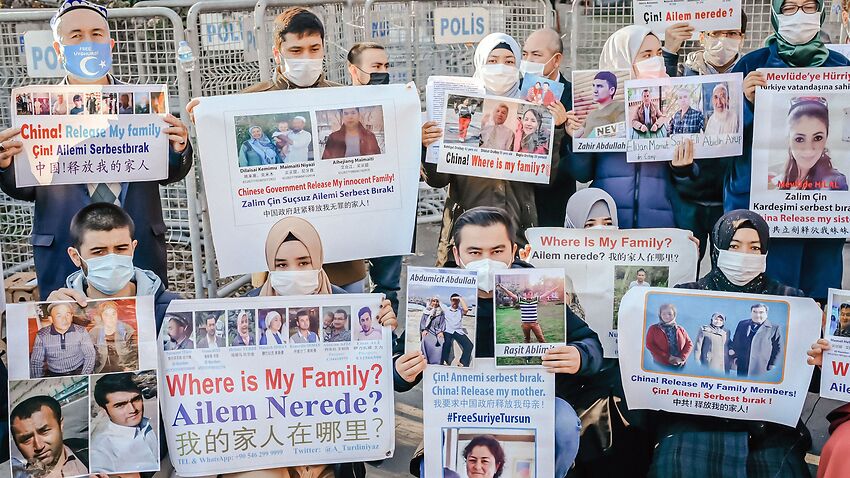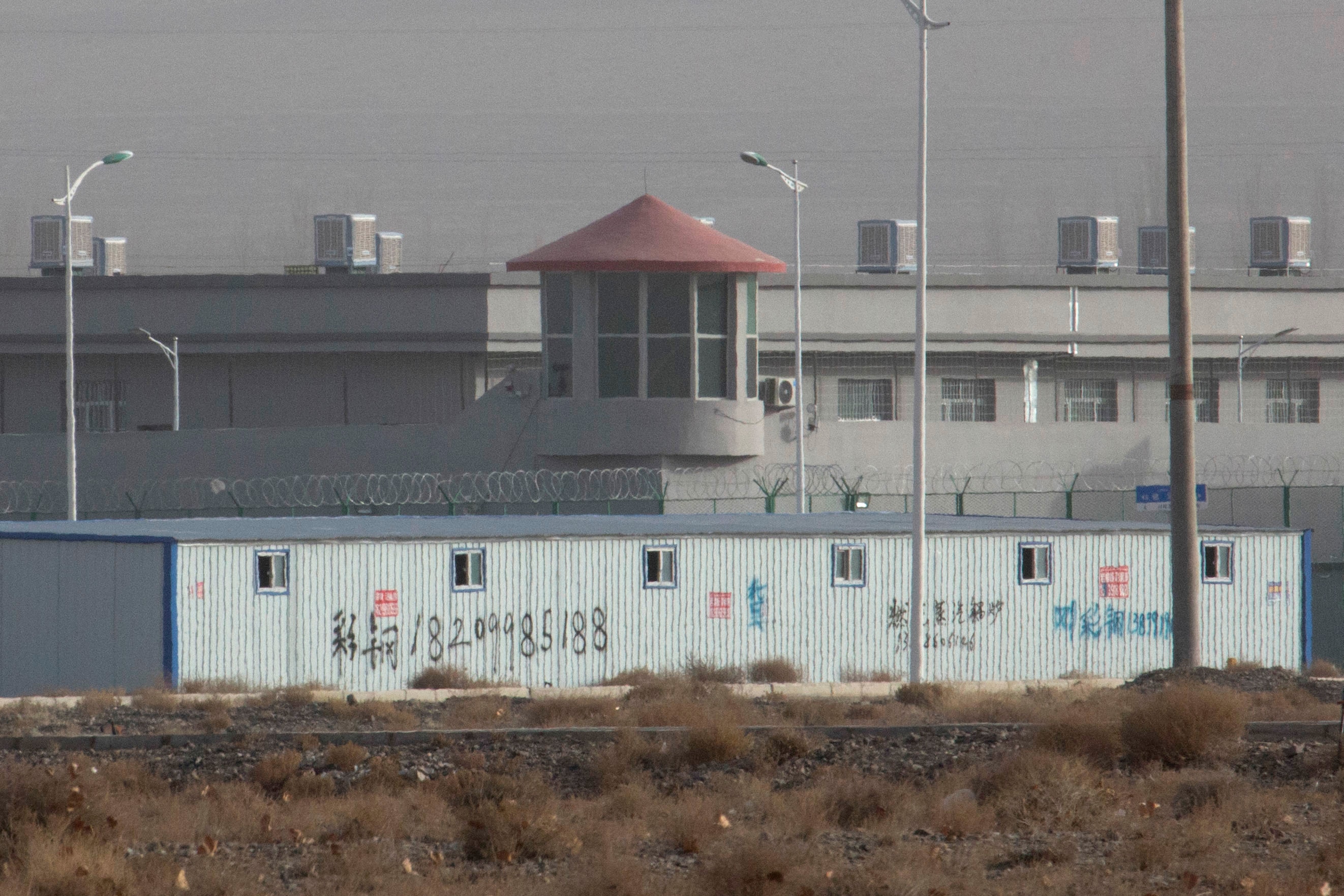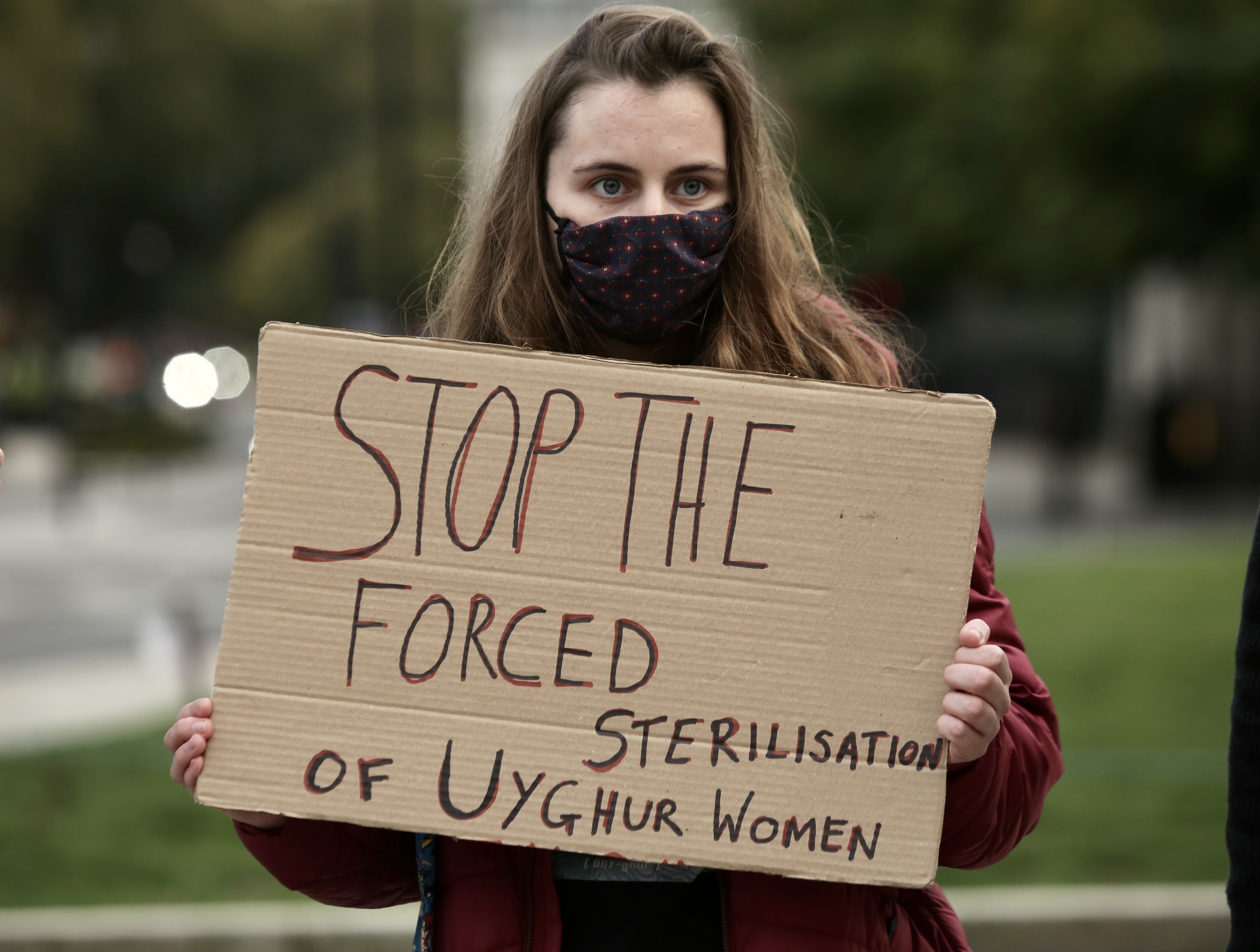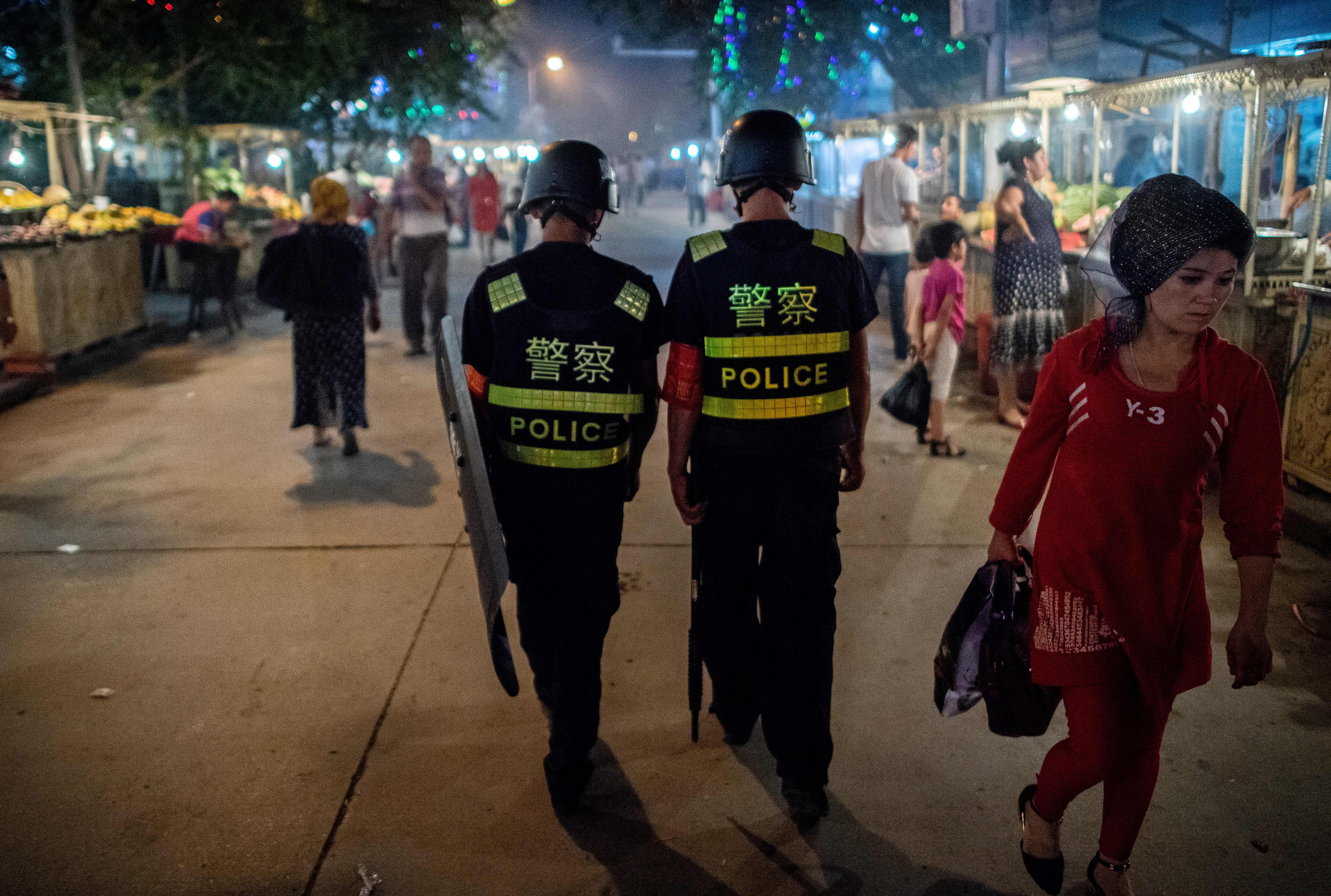Rushan Abbas hasn’t heard from her sister for more than two years.
Gulshan Abbas, a retired medical doctor, disappeared along with her aunt in September 2018 and was cut off from her family, who are Uighurs, a Muslim minority group which live mostly in China’s northwest Xinjiang province.
Rushan, an activist based in the United States, has publicly advocated on her sister’s behalf ever since, insisting she had been kidnapped by Chinese authorities and placed in a camp or labour factory as punishment for Rushan’s activism about the country’s alleged persecution of Uighurs.
Chinese state media initially dismissed her claims.
A piece published by China’s Global Times newspaper in December 2019 claimed Rushan “stole some Uighurs’ photos and information, claimed these people to be ‘missing’ relatives in Xinjiang, spread rumours on overseas media and had interactions with some certain media”.
But last month, on 31 December, the Chinese Foreign Ministry finally confirmed Gulshan had been sentenced to 20 years in jail on terrorism charges.
Chinese foreign ministry spokesperson Wang Wenbin told a press briefing in Beijing she had been “sentenced to jail by Chinese judicial authorities for crimes of participating in a terrorist organisation, aiding terrorist activities and assembling crowds to disrupt social order”.
China is “a country with rule of law, where criminals must be held accountable,” he added, urging US politicians who had spoken out to “respect facts, stop making lies to smear China, and stop interfering in China’s internal affairs under the pretext of Xinjiang-related issues”.
Rushan insists the charges were made up.
“My sister was taken by the Chinese regime as a retaliation for my activism,” she told SBS News. “She doesn’t fit any of the rhetorics of this false propaganda as to what the Chinese government is saying about the concentration camps.
“She’s a retired medical doctor, she speaks fluent Chinese, and she’s not a religious person. She has never travelled to any Muslim-majority countries, and she is connected to no one in a Muslim-majority country because we have no relatives in those countries.
“Someone like my sister, a law-abiding innocent person, is being held as a hostage by this mafia government. Do you think that any other government in the world would do something like this?”
US government official Kelley Currie of the Office of Global Women’s Issues has dismissed the sentencing as a “sham trial”.
“Her American family members are telling the truth about CCP gulags [Chinese Communist Party forced labour camps] in Xinjiang,” she wrote in a social media post.
The details of Gulshan’s sentencing come as more than one million Uighurs – and other ethnic minorities living in Xinjiang – have been subjected to an increasingly harsh crackdown during the coronavirus pandemic, according to human rights activists.
The claims follow several other allegations about their treatment by China.
‘Re-education’ camps
Over the past few years, Uighur activists have attempted to draw the world’s attention to a vast network of “re-education” camps, where human rights groups and former detainees say people are being subject to forced political indoctrination, abuse and torture.
The Chinese government claims the camps are “voluntary” in nature and used to counter religious extremism, with the Chinese embassy in Australia telling SBS News they are no different from deradicalisation and corrections programs and centres in the US, UK and France.
“The claim that ‘nearly one million Uighurs are detained’ is an outright rumour created by some US and Western media outlets, repeated by some individuals who bear grudges towards the Chinese government or who do the bidding of their masters in the West,” the embassy said in an email this month.
But by the beginning of 2020, stories about the camps were being taken seriously around the world.
The New York Times and the International Consortium of Investigative Journalists released a report on leaked files that exposed how the Chinese government had organised the mass detentions. More than 400 pages of internal Chinese documents provided an inside look at the crackdown, showing authorities had corralled as many as one million Uighurs, Kazakhs and other minorities and placed them in internment camps.
The report showed how Chinese President Xi Jinping had laid the groundwork for the crackdown in a series of early speeches, having in April 2014 called for an all-out “struggle against terrorism, infiltration and separatism” using the “organs of dictatorship,” and showing “absolutely no mercy”.
At the end of 2019, the US House of Representatives passed the Uighur Human Rights Policy Act, a federal law described as “an act to condemn gross human rights violations of ethnic Turkic Muslims in Xinjiang, and calling for an end to arbitrary detention, torture, and harassment of these communities inside and outside China”.
Activists were waiting for the bill to be passed by the US Senate in early 2020, and according to Rushan, they felt positive about it.
“We were very hopeful that things would move forward,” she said. “Finally the world was starting to what understand what the Chinese government was doing.”
Then, the COVID-19 pandemic hit.
‘Forced labour’
Xinjiang has been under a harsh lockdown since China’s initial COVID-19 outbreak in January, despite reporting fewer than 100 infections and three deaths at the time. Activists say it was subject to strict lockdown measures on par with those imposed on Wuhan, the original epicentre of the virus.
In mid-July, Chinese officials declared a “wartime mode” for the region. Residents were trapped in their homes for more than a month as the government imposed harsh new measures. The recorded “spike” in cases at the time was a daily high of just 17 and China had fallen out of the top 20 hardest-hit countries.
As Wuhan re-opened and photos of crowded summer pool parties went viral, Xinjiang remained closed, with its train stations shut and bus routes cancelled.
In August, footage that went viral on Chinese social platforms WeChat and Weibo claimed to show people captured on video shouting to be released from their apartments. Rushan said she had also heard of cases where front doors had paper seals placed over them to make sure residents did not leave without permission.
Rushan says the pandemic gave Chinese authorities an excuse to continue clamping down on Uighurs, and capitalise on forced labour and slavery while international attention was focused elsewhere.
“The situation gave them an opportunity to further extend their control in our region, and they basically used workers for reopening the factories as slaves, because many young workers were taken to forced labour facilities,” she said.
“There are news reports that the workers are actually forced to leave their homeland, to go to China to reopen the factories, during the peak of the pandemic.”
In December, a report by the Centre for Global Policy said there was significant evidence Chinese authorities were allegedly employing “labour transfer programs” to make hundreds of thousands of ethnic minority workers in Xinjiang pick cotton.
The report, written by Xinjiang researcher Adrian Zenz, analysed government documents and state media reports and estimated 570,000 people came from just three minority-heavy prefectures, as well as hundreds of thousands more from elsewhere.
Xinjiang official Xu Guixiang said at a December press conference that reports of forced labour in the common and textile industries in the province were “ridiculous”, according to quotes published by Chinese state media.
His remarks were echoed by the Chinese embassy in Australia.
“The so-called ‘massive forced labour’ in Xinjiang are lies and fallacies fabricated by some American and western anti-China organisations and individuals, which totally run counter to the facts,” the embassy told SBS News.
“The truth is ethnic minority workers from Xinjiang are part and parcel of the country’s labour force. They have the rights to be employed … [and] the freedom to choose their occupation. Their personal freedom has never been restricted.”
‘Forced sterilisations’
But Rushan says the alleged treatment of Uighurs – combined with attempts to eradicate their culture and livelihoods – amounts to genocide.
“What’s happened to the Uighur people is an act of genocide. Genocide is the intent of the oppressor,” she said.
“And the intent of the Chinese regime is basically to kill Uighurs, and everything they are doing in these concentration camps – the forced sterilisations, forced abortions, and over 500,000 children being taken away. Forcing women to marry Han Chinese men and taking workers out of the region. Sending them to forced labour facilities in China.
“That all adds up to active genocide.”
An Associated Press investigation published in June 2020 said the Chinese government regularly subjected women to pregnancy checks and forced intrauterine devices (IUDs), sterilisation and abortion. The findings were based on government statistics, state documents and interviews with 30 ex-detainees, family members and a former detention camp instructor.
On 10 January, Twitter removed a post by China’s US embassy claiming that Uighur women were no longer “baby-making machines”, which linked to a China Daily article denying allegations of forced sterilisation in Xinjiang.
Twitter said the post had “violated the Twitter rules” but did not provide further details.
In December 2019, The New York Times published a report that said nearly a half a million Uighur children had been separated from their families and placed in boarding schools in Xinjiang.
The report quoted a Chinese government planning document published on a government website and said the Chinese Communist Party had set a goal of operating one to two such schools in each of Xinjiang’s townships by the end of 2020.
“The so-called ‘forced sterilisation’ on Uyghurs is completely unfounded,” the Chinese embassy said.
“The Chinese government protects the rights and interests of all ethnic minorities in equal measure, with preferential population policies toward minorities groups including Uighurs.”
From 2010 to 2018, the Uyghur population in Xinjiang grew by 25 per cent, compared to the region’s overall growth of 13 per cent, it added.
It did not comment on the claim that Uighur women were being subjected to forced marriages with non-Uighur men.
‘Culture eradicated’
A study released in September 2020 pointed to Uighur culture being eradicated in the region.
The Australian Strategic Policy Institute (ASPI) revealed almost two-thirds of mosques in Xinjiang had been destroyed or damaged. Using satellite imagery analysis, the research estimated up to 35 per cent of mosques had been demolished and a further 30 per cent damaged in some way.
Lead author Nathan Ruser estimated around 16,000 mosques were “damaged or totally destroyed” throughout the region. The institute also identified more than 380 “suspected detention facilities” in the region, around 40 per cent more than previous estimates.
Xinjiang officials dismissed the ASPI analysis into mosques being destroyed as “fake”, accusing ASPI of “receiving funds from the US government and pioneering anti-China rhetoric”.
Calls for international community’s help
Ms Abbas urged governments around the world, including Australia’s, to “actually do something to hold China accountable”.
“Many countries continue to do business with China,” she said. “It reminds me of the Holocaust because when Nazi Germany was holding millions of Jewish people in the concentration camps, many countries continued to do business with Nazi Germany. And for the sake of the economy, the same thing is happening as back then when the country tried to claim ignorance.
“None of the leaders in the western world today can claim such ignorance – they have the information, they know what’s happening. So for the sake of economic advantage, trying to continue to do economic business with China is being complicit with genocide,” she said.
Rushan also said celebrities who attach themselves to social causes need to include the plight of Uighurs in that.
“Women are being subjected to sexual abuse. Where are the leading voices for feminism and women’s rights? Hollywood celebrities are always very vocal about any kind of social injustice – what about the Uighur women, and what they’re facing?
“My message to the world is ‘wake up’. Wake up and stop China before it’s too late.”
In December, exiled Uighurs handed a dossier of evidence to the International Criminal Court, calling on prosecutors to investigate China for alleged genocide and crimes against humanity. The dossier accused China of locking more than one million Uighurs and other mostly Muslim minorities in re-education camps and of forcibly sterilising women.
But the office of prosecutor Fatou Bensouda said it was unable to act because the alleged acts happened on the territory of China, which is not a signatory to The Hague-based ICC.
In September last year, the Australian government publicly criticised the Chinese government for enforcing “repressive measures” against Uighurs.
In a speech to the UN’s human rights council, Foreign Minister Marise Payne called for accountability from Chinese authorities on the crackdown in Xinjiang.
“More remains to be done to address these, including concerning reports of repressive measures enforced against Uighurs and other ethnic minorities in Xinjiang,” she said.
In December, independent senator Rex Patrick introduced a new bill to federal parliament aimed at stopping the supply line of goods made in Xinjiang to Australia.
“Any product that originates from Xinjiang will be stopped at the border. It will not be permitted to be landed here in Australia,” he told SBS News at the time.
Australia introduced laws focused on stamping out modern slavery in late 2018 but Senator Patrick said they don’t go far enough.
“The modern slavery legislation deals with companies that have a turnover of more than $100 million but this bill seeks to stop any company, no matter how much turnover it has, from importing materials from Xinjiang.”
The Senate has referred the bill to the Foreign Affairs, Defence and Trade Legislation Committee for inquiry and submissions will be open until February 2021.













